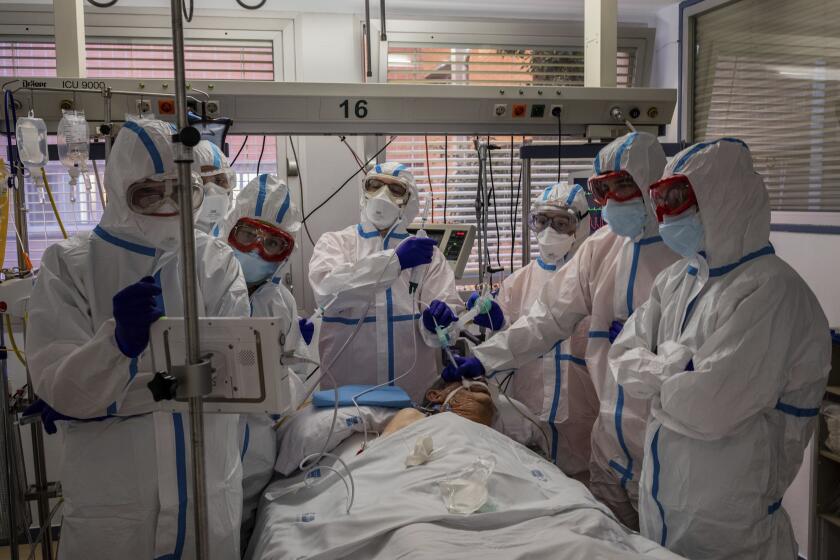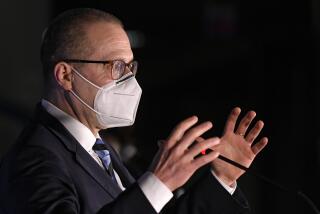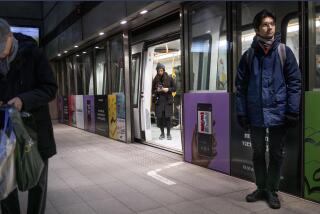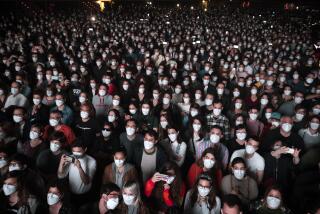Italy hits daily high of nearly 41,000 coronavirus cases
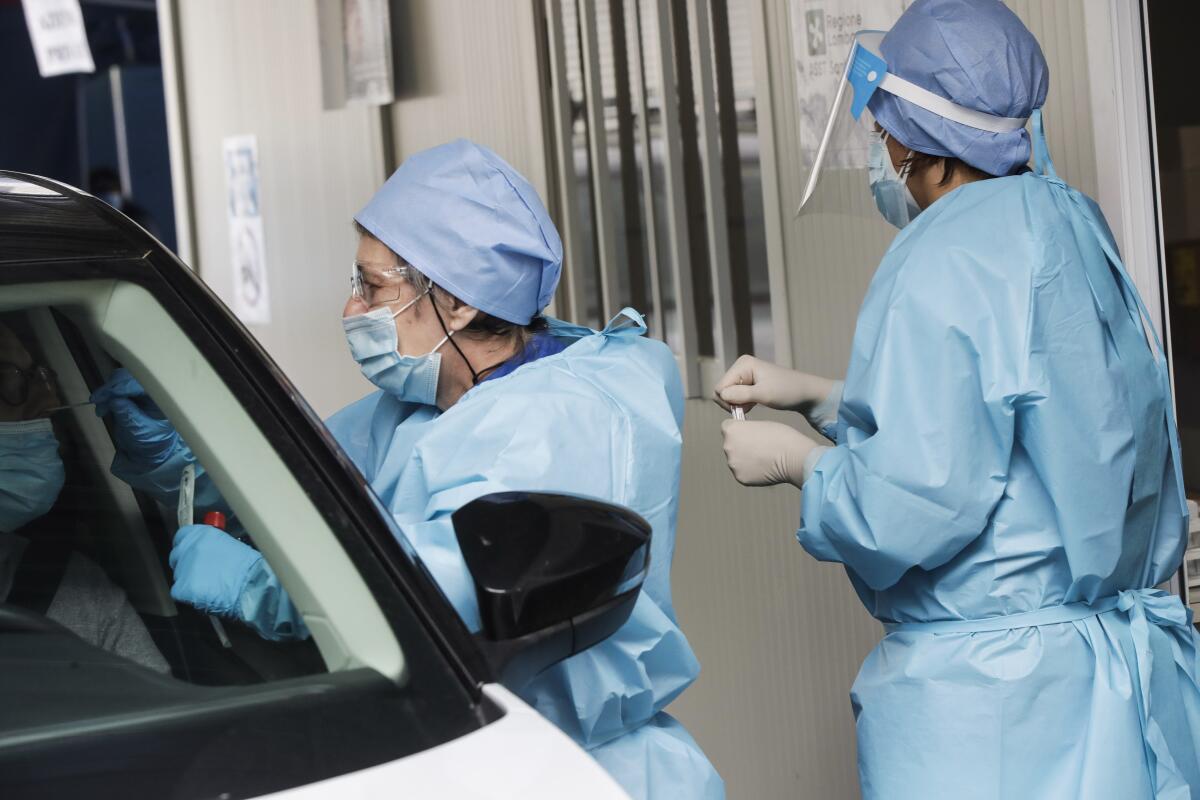
- Share via
NAPLES, Italy — Italy hit a record high of nearly 41,000 new coronavirus cases Friday.
The regions of Campania and Tuscany were designated red zones, or highest risk, signaling the dire condition of hospitals struggling with new admissions.
Italy’s new caseload reached 650 per 100,000 people. Densely populated Campania, which includes Naples, had 4,079 cases. That’s the third-highest regional daily total, behind Lombardy, with 10,634, and Piedmont, with 5,258, both of which have been red zones since last week. Tuscany added 2,478 cases.
Naples Mayor Luigi de Magistris told the Associated Press that “the health system is under massive pressure and on the verge of collapse.”
Italy has confirmed 1.1 million coronavirus cases in total. The country reported 550 deaths Friday, bringing the known toll to more than 44,000.
Here is what is happening across other European countries.
Portugal
Daily coronavirus cases, hospital admissions and deaths have hit new records.
The Directorate-General of Health reported 6,653 confirmed cases Friday, with 2,799 people in hospitals. The previous 24 hours saw 69 deaths.
A coronavirus outbreak tied to a wedding reception caused 177 infections and 7 COVID-19 deaths. It shows why health officials are nervous about holiday gatherings.
Portugal, with a population of 10.5 million, has surpassed 200,000 cases.
Tighter restrictions on movement, including a weekend curfew after 1 a.m., took effect this week as part of a state of emergency.
Portugal’s 14-day average case number per 100,000 people is 636, according to the European Center for Disease Prevention and Control. That’s more than in neighboring Spain, with 590.
England
Britain’s Office for National Statistics said an estimated 654,000 people in private households in England tested positive for the coronavirus between Oct. 31 and Nov. 6.
The previous week, there were 618,700 positive tests, the agency said. The weekly survey tests thousands of people, whether or not they have symptoms of COVID-19.
The survey included the period ahead of Nov. 5, the start of the latest lockdown in England, which was imposed following a sharp increase in infections.
The current lockdown requires pubs, restaurants and stores to remain closed until at least Dec. 2. Unlike the spring lockdown, schools and universities remain open, along with construction sites and factories.
Can you have Thanksgiving during the COVID-19 pandemic? Researchers have created an interactive map that estimates the risk you’ll face in any county.
Greece
The prime minister says the Greek government will provide the coronavirus vaccine, when it becomes available, to all Greeks free of charge.
Kyriakos Mitsotakis made the comments while chairing a ministerial meeting about the government’s vaccination strategy. Greece has seen a resurgence of the virus’ spread that is putting pressure on the health system.
“I insist on the free access of all Greeks to the vaccine, because this government has treated the vaccine as a public good from the start,” Mitsotakis said. “That is why it will be provided free of charge to all, with no exceptions.”
Europe’s hospitals are running low on staff and ICU beds as COVID-19 infections roar back across a continent that had hoped the worst was over.
On Thursday, Greece announced a record number of new daily coronavirus infections, more than 3,300, and related deaths, 50. The totals in this country of 11 million people now top 66,600 confirmed cases and 959 deaths.
Germany
Germany’s disease control center is reporting a new daily record of infections as the country nears the halfway point of new lockdown measures.
The Robert Koch Institute says Germany’s states reported 23,542 daily cases Friday, more than the previous record of 23,399.
Chancellor Angela Merkel will hold talks with state governors Monday, midway into a series of measures the government has called “lockdown light.”
Germany on Nov. 2 embarked on a four-week partial shutdown aimed at flattening a sharp rise in new infections. Restaurants, bars and sports and leisure facilities have closed, but schools and nonessential shops remain open. Officials say it is too early to tell whether the new measures are having the desired effect.
Merkel on Thursday warned Germans to expect “difficult winter months.” Health Minister Jens Spahn warned against Christmas parties with more than 10 or 15 people.
More to Read
Sign up for Essential California
The most important California stories and recommendations in your inbox every morning.
You may occasionally receive promotional content from the Los Angeles Times.

